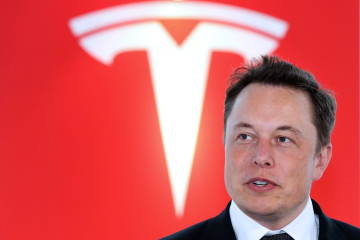Oil’s Famous Five: People Who Could Define the Market in 2018

(Bloomberg) —
Will Saudi Arabia and Russia maintain their grip on production, or could they succumb to another surge in U.S. shale? Is it possible for the economic collapse of a major producer to send crude prices soaring, or perhaps Silicon Valley will usher in the end of the combustion engine?
After ending 2017 at a two-year high, oil prices could go either way this year, and these five individuals could play defining roles.
The OPEC Kingpin
Saudi Minister of Energy and Industry Khalid Al-Falih is facing a crucial 12 months. Having defied skeptics in 2016 by reversing the kingdom’s strategy and sealing the Organization of Petroleum Exporting Countries’ first output cut in eight years, the former chairman of Aramco finished last year on another high after securing a deal to extend the curbs to the end of 2018.
Now all Al-Falih has to do is ensure fellow members maintain their pledged cuts, keep Russia invested in the deal, and hope oil prices are high enough to ensure a successful initial public offering of Aramco without spurring another wave of U.S. shale. Simple.
Putin’s Oil Man
If OPEC-watchers once fixated exclusively on every word of Saudi Arabia, they now obsess over a country that isn’t even part of the cartel. Russia’s decision last year to join OPEC in cutting oil production, after years of keeping its distance, has been critical in the success of the strategy.
Consequently, crude traders are just as likely to pore over the statements of Russian Energy Minister Alexander Novak as of his Saudi counterpart. Novak, 46, has developed a clear personal bond with Al-Falih, helping the two countries to set aside years of mutual distrust and seal a historic cooperation agreement. Their partnership has been so strong that Citigroup Inc. calls it a “ bromance,” but it may be tested by pressure from Russian companies pushing for an early end to the cuts.
The Shale Pioneer
Growth in U.S. shale output is the biggest wild card for 2018, with estimates from 700,000 barrels a day to more than 1 million, depending on who you ask. At the center of the industry is the Permian in Texas, and Pioneer Natural Resources Co. is one of the biggest acreage holders in the basin.
Its CEO Tim Dove sees the area as the “lifeblood” of U.S. production for many years, forecasting production there will rise to 3.3 million barrels a day this year from about 2.85 million currently. But it’s not all plain sailing. The company underperformed the S&P Energy index in the second half of 2017, possibly a victim of investors losing patience with the shale industry as a whole. Still, the company had already locked in selling prices for more than 70 percent of 2018 production as of the third quarter, according to a Bloomberg New Energy Finance survey.
The Latin Strongman
Crippling U.S. sanctions, overdue bond payments and dwindling crude production: Venezuela’s president Nicolas Maduro has a lot on his plate heading into 2018. Promising a “new oil revolution,” the increasingly authoritarian leader named a military general as the nation’s chief oil supremo and embarked on a wide-reaching purge of officials at state oil company Petroleos de Venezuela SA, including two former petroleum ministers.
The Latin American nation’s economic crisis has been worsened by dwindling crude output, which fell to 1.86 million barrels a day in November from more than 3 million in 2001. In 2018, the consultant Rystad Energy estimates some crude fields could decline by as much as 30 percent. That would put Venezuela’s output well below its OPEC target, meaning the market could be tighter than the group intends.
The Tech Rockstar
Re-usable rockets and dreams of launching manned flights to Mars have long made Elon Musk a famous name for tech enthusiasts, but 2018 could be the year the oil market really takes notice. The six-foot-two South African entrepreneur hopes that 5,000 units of Tesla Inc.’s new lower-cost Model 3 electric car will roll off the assembly line every week by April. That would be a breakthrough for battery-powered vehicles, bringing what has been a luxury technology to the mass market.
If Musk succeeds, it will surely stoke speculation that electric cars will displace the internal combustion engine faster than expected. Even OPEC has conceded that oil consumption could stagnate in coming decades if battery-powered vehicles go mainstream. For now, oil bulls can take comfort in Tesla’s teething troubles — it’s burning through $8,000 a minute and Model 3 deliveries during the third quarter numbered just 260.







No Comment